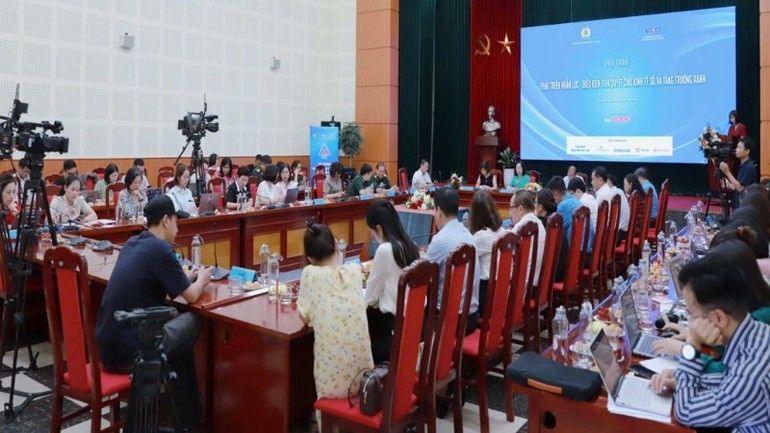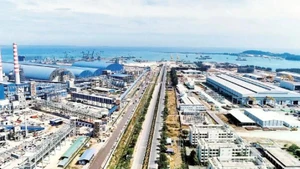The event provided an opportunity for leaders of central agencies, business representatives, experts, trade union organisations, and the media to identify trends, share experiences, analyse challenges, and propose solutions for developing a workforce that meets the new demands of the economy.
In her opening remarks, Phan Thu Thuy, Deputy Editor-in-Chief of Lao Dong Newspaper, stated that the global economy is entering a period of profound transformation. Viet Nam is actively integrating into this trend, viewing it as an inevitable path to enhancing competitiveness and achieving comprehensive socio-economic development.
This process requires a shift from extensive to intensive growth, from resource exploitation to value creation, and from linear consumption to a circular economy. Regardless of the approach, people and human resources remain at the centre, determining both the speed and quality of every transformation.
These orientations were clearly affirmed in Politburo Resolution No. 57-NQ/TW (dated December 22, 2024) on breakthroughs in the development of science, technology, innovation, and national digital transformation, and in Politburo Resolution No. 68-NQ/TW (dated May 4, 2025) on developing the private economy.
Deputy Editor-in-Chief Phan Thu Thuy emphasised that the seminar served as a platform for policymakers, employers, trade unions, businesses, and experts to discuss, share experiences, and propose practical solutions to bridge the gap between policy and implementation.
Speakers at the seminar highlighted the new requirements facing workers — from digital skills and green skills to the ability to adapt to new technologies and labour models. Workers are not only implementers but also key factors in building the competitiveness of both enterprises and the national economy.
In his closing remarks, VGCL Standing Vice President Thai Thu Xuong stressed: “Investing in workers today provides the greatest ‘savings’ for the future — not only for businesses but for society. We cannot speak of green growth or digital transformation without simultaneously changing the way we perceive, treat, and invest in people.”
















